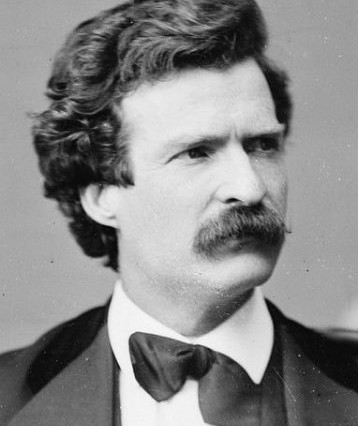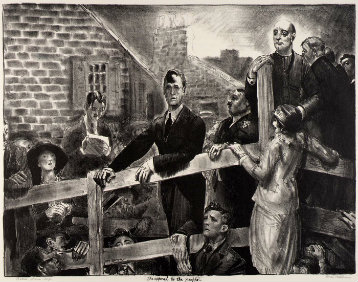How To Use This Discussion Guide
Materials Included | Begin by reading Mark Twain’s “The Man That Corrupted Hadleyburg” on our site or in your copy of What So Proudly We Hail.
Materials for this guide include background information about the author and discussion questions to enhance your understanding and stimulate conversation about the story. In addition, the guide includes a series of short video discussions about the story, conducted by David Brooks (The New York Times) with the editors of the anthology. These seminars help capture the experience of high-level discourse as participants interact and elicit meaning from a classic American text. These videos are meant to raise additional questions and augment discussion, not replace it.
Learning Objectives | Students will be able to:
- Discuss the status of virtue in a democratic society devoted to gain and self-interest, through reading Mark Twain’s “The Man That Corrupted Hadleyburg” in relation to the ideas expressed in Federalist 10;
- Read closely to determine what the text says explicitly and to make logical inferences from it;
- Cite specific textual evidence when writing or speaking to support conclusions drawn from the text;
- Determine central ideas or themes of a text and analyze their development
- Summarize the key supporting details and ideas;
- Analyze how and why individuals, events, and ideas develop and interact over the course of a text;
- Interpret words and phrases as they are used in a text, including determining technical, connotative, and figurative meanings, and analyze how specific word choices shape meaning or tone;
- Delineate and evaluate the argument and specific claims in a text, including the validity of the reasoning and the relevance and sufficiency of the evidence; and
- Analyze how two or more texts address similar themes or topics to build knowledge or to compare the approaches the authors take.
Common Core State Standards Addressed | Literacy in History/Social Studies
-
RH.9-10.1, RH.9-10.2, RH.9-10.3, RH.9-10.8, RH.11-12.1, RH.11-12.2, RH.11-12.4, RH.11-12.9
English Language Arts:
-
RL.9-10.1, RL.9-10.2, RL.9-10.3, RL.9-10.4, RL.9-10.9, RL.11-12.1, RL.11-12.3, RL.11-12.4
Writing Prompts | Based on Common Core Standards in English Language Arts and Literacy in History/Social Studies:
- List the various ways in which the Hadleyburgians are described. What motivates them? What are their chief virtues and vices? What do they revere? What are their religious beliefs, and how firmly are they held? After reading “The Man That Corrupted Hadleyburg,” write an essay that addresses the question and analyzes the town of Hadleyburg and its inhabitants, providing examples to clarify your analysis. What conclusions or implications can you draw? (Informational or Explanatory/Analysis; Task 21)
- Is it foolish for a city to pride itself on its virtue? Is it possible to cultivate civic pride without also cultivating vanity? After reading “The Man That Corrupted Hadleyburg,” write an essay that addresses the question and support your position with evidence from the text. Be sure to acknowledge competing views. Give examples from past or current events or issues to illustrate and clarify your position. (Argumentation/Analysis; Task 2)
- What is the role of public opinion in contemporary American life? What can be said both for and against its influence? After reading “The Man That Corrupted Hadleyburg,” write an essay that discusses the question, and evaluate the pros and cons for the influence of public opinion in American life. (Argumentation/Analysis; Task 6)






Post a Comment